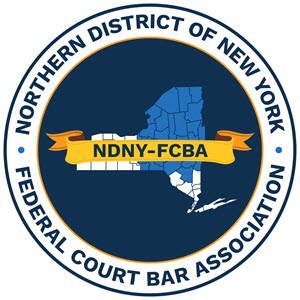By Alexandra J. Romano, J.D. Syracuse University College of Law ‘21
In Thevenin v. French, No. 19-3085-cv, 2021 WL 961081 (2d Cir. March 15, 2021), the United States Court of Appeals for the Second Circuit affirmed a decision and order issued by the United States District Court for the Northern District of New York, Thevenin v. French, 1:16-CV-1115, 2019 WL 4242247 (N.D.N.Y. Sept. 6, 2019) (Stewart, M.J., on consent), which had denied that portion of defendants’ motion for summary judgment that was based on their defense of qualified immunity.
Cinthia Thevenin, as the administratrix of the estate of her deceased husband Edson Thevenin, sued both the City of Troy and the administratrix of the estate of deceased Troy Police Department Sergeant Randall French (who died in April 2020 from COVID-19). Plaintiff claimed that, on the early morning of April 17, 2016, Sergeant French used excessive force against Edson in violation of the Fourth Amendment, by unnecessarily shooting and killing him after a low-to-average-speed chase through the City of Troy as he was attempting to flee an arrest for Driving While Intoxicated. Relying on the testimony of an eyewitness, Plaintiff argued that Sergeant French fired 8-12 shots all at once through Edson’s windshield when Edson’s conduct posed no threat to the safety of Sergeant French nor anyone else.
In response, defendants relied on eyewitness testimony that Sergeant French fired the shots because Edson had used his vehicle to pin him between his police car and Edson’s vehicle, a Honda Civic, and he had heard the engine revving and believed he was going to die. Defendants claimed that, at the very least, Sergeant French was protected from liability as a matter of law by the doctrine of qualified immunity because it was objectively reasonable for him to have believed that his actions were lawful in light of the legal rules that were clearly established at the time action was taken. Relying on that doctrine, defendants moved for summary judgment with regard to plaintiff’s Fourth Amendment claim.
Because of the conflict in eyewitness testimony, U.S. Magistrate Judge Daniel J. Stewart, acting on consent of the parties, ruled that a genuine dispute of material fact prevented the Court from granting defendants’ motion for summary judgment on plaintiff’s Fourth Amendment claim. Judge Stewart ordered all remaining claims to trial. Defendants appealed the ruling.
Applying the doctrine of qualified immunity, the Second Circuit found that it was settled law, as stated in Cowan, ex rel Estate of Cooper v. Breen, 352 F 3d 756 (2d Cir. 2003), that it is not reasonable for an officer, in pursuit of a fleeing motorist, to use deadly force unless the officer has probable cause to believe that the fleeing suspect posed a significant threat of death or serious physical injury to the officer or others. The Second Circuit further found that an eyewitness, who viewed the incident from 50 feet away, testified that, after Edson’s vehicle hit a concrete bridge barrier, Sergeant French and another officer positioned their police vehicles in front and in back of Edson’s vehicle and, at that point, Sergeant French exited his car, did not say anything and fired 8-12 shots at Edson “all at once.” Finally, the Second Circuit found that, according to the eyewitness, Edson’s Honda Civic and Sergeant French’s police car were four feet apart, the Honda was not moving, and it was only after the shots were fired that the Honda started rolling forward and pinned Sergeant French between the vehicles. Viewing the evidence in the light most favorable to plaintiff, therefore, the Second Circuit was not persuaded by Sergeant French’s argument that he reasonably believed he faced a significant threat of death or serious physical injury at the time he fired the shots.
In its decision, the Second Circuit emphasized that, although Sergeant French undoubtedly became pinned between two vehicles at some point during the incident, according to an eyewitness, this pinning did not take place until after the shooting had occurred. The Second Circuit reasoned that, because there was a genuine dispute of material fact regarding the cause and timing of Sergeant French’s “pinning,” qualified immunity was not appropriate at this stage of the case.

